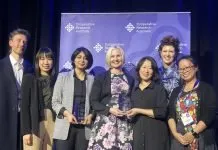In this guest post, Faye Spiteri OAM, CEO of Frondithacare, discusses the new mandatory care minutes for residential aged care, arguing that it overlooks ENs, and threatens workforce sustainability, and holistic care.
They say it takes a village to raise a child. In the same vein, it takes an ecosystem of dedicated aged care staff to ensure older Australians age safely and with dignity.
On Sunday, 1 October 2023, a new mandate came into effect, requiring Australian aged care providers to deliver a minimum of 200 minutes of care per resident per day. This includes care delivered by registered nurses (RNs), enrolled nurses (ENs) and personal care workers (PCWs) or assistants in nursing (AINs) – also known as nursing assistants.
The new requirements are a direct response to the recommendations of the Royal Commission into Aged Care. In principle, I support these changes. They have put a spotlight on improving care across the sector.
The 200 care minute mandate includes a minimum of 40 minutes of direct care provided by RNs. Although ENs are qualified to perform clinical care tasks under these new requirements, their contribution to clinical care is not counted. And this is creating major challenges. How can we improve care for our elders without futureproofing our workforce?
Anecdotally, I’ve even heard of ENs being let go because their work is not included within the 40-minute requirement. Not recognising ENs contribution to clinical care, is discouraging them from considering careers in the aged care sector, resulting in a loss of valuable expertise within our industry. This limitation is hard to understand, especially considering existing workforce shortages.
In a similar manner, the holistic approach taken by most providers in delivering quality care is not counted in the care minutes tally. This means the teams working to ensure our elders’ cultural, spiritual and general wellbeing needs are met, are not all recognised.
While the 200 minutes is designed to improve the care of older Australians, underpinned by dignity and respect, in practice, the mandate is an overcorrection. Policymakers understandably took a blanket approach to improving clinical care, but the unintended consequence of this mandate is actually a reduction of available workforce which has led to many providers leaving the sector and putting the care of elders at risk.
Fronditha Care has been delivering 24/7 clinical care for decades and at the same time ensuring a management structure across our facilities that includes RNs at every level, from the Executive Manager Residential Services to Facility Managers, Deputy Facility Managers and Clinical Care Coordinators.
Fronditha Care prioritises holistic care planning, ensuring the cultural, spiritual and general well-being with the needs of our elders and their families at the centre, and to this end, we provide excellent clinical care through a diverse team of RNs, ENs, and allied health specialists alongside a range of health and living well programs delivered through specialised teams – it takes a village to provide quality care for elders.
Similarly, there are thousands of people who like us are working right across the sector and are dedicated to holistic improving the quality of care. However, the new requirements create unrealistic expectations of what is possible.
To continue to provide quality aged care, we need a sustainable workforce. To build a sustainable workforce, we need to continue to encourage nurses of all skill levels and qualifications to consider a career in aged care or remain in the industry. They are vital to the ecosystem of care, which enables our elders to age with dignity and grace.
If policymakers were to tweak the requirements to recognise and include the contributions of ENs that would make a world of difference because the ENs of today are the RNs of tomorrow.










